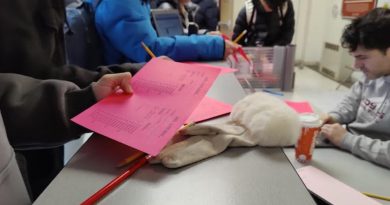Is a Well-Rounded Education Still Necessary?
In today’s fast paced and academically competitive world, being a well-rounded student is more important than ever. While academic success is valuable, it is only one piece of this whole thing. A well rounded student participates in a variety of activities like sports, the arts, leadership roles, or community service that helps build confidence, creativity and real world skills. These experiences not only make students more interesting and build personality, it also prepares them for life after high school.
Colleges and employers often look for people who can balance their responsibilities, and think critically, and work well with others. A student who has explored multiple interests often develops better time management, communication, and problem solving skills. In addition, stepping outside of just academic focus can help combat burnout and improve mental health, giving a healthier and more balanced approach to learn and grow.
Being well rounded doesn’t mean being perfect at everything and it means being curious, open to learning, and willing to challenge yourself in all fields. In the end, a well-rounded education helps students discover who they are and what they’re passionate about, leading to a more fulfilling and successful future both personally and professionally.
Additionally, being involved in different activities allows student to learn important lessons about responsibilities, teamwork, and leadership. For example, joining a sports team can help a student learn how to work with others toward a common goal, while showing up and participating in the arts can also help with creativity and self expression. Volunteering in the community can build emotion and a sense of civic duty. Each of these activities brings its own value and together they make a strong foundation for both personal growth and future success.
Another important part of it is being well rounded is that it gives students the chance to build strong relationships with a variety of people. Whether it’s through clubs, sports, or other programs, students can meet other people and mentors who can help support them and inspire them. These connections can open doors to new opportunities, such as internships, scholarships, or career paths students may not have considered before.
Finally, learning to balance academics with other interests helps students handle stress and stay motivated. When students have outlets to express themselves or relax, they are more likely to stay engaged and enjoy the learning process. This kind of balance is something that benefits people far past their school years and it can become a lifelong skill that helps in college, careers, and everyday life.
picture credit: Canva



